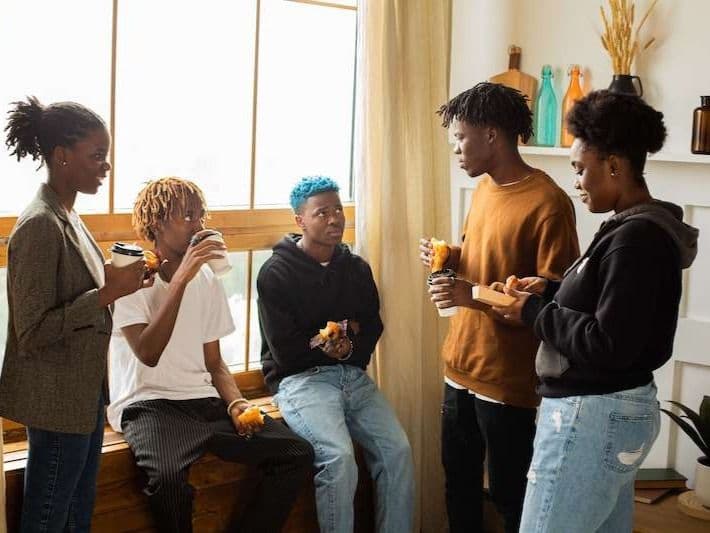Venting, confiding in and opening up to your friends is awesome. It fosters a sense of community and social support — a feeling of “I’m not all alone”. Plus, it might be simply fun or enjoyable to share about each other’s lives. Thus, in friends, there’s give and take. Sometimes it’s your turn to be supported and sometimes it’s my turn to be supported. This is the dynamic that is inherent and expected in friendships and there’s nothing wrong with that!
However, There Are A Few Things To Keep In Mind When Sharing Your Issues With Friends.
01. Friends do not have a professional responsibility to remain unbiased. They are simply do not have the training or awareness to not let their own “stuff” influence their responses to your “stuff”, not are they expected to. With friends, sometimes there might be an expectation that their preferences are your preferences.
02. Friends are not trained to recognize when you might be getting triggered and expected to know what to do with it. When a topic is ultra sensitive, it’s possible that your friends’ responses might exacerbate the problem or trigger you further. You may decide to tell your friend that their comments and suggestion are triggering but considering you’re contemplating your own issues, you might not have the energy. Even so, your friend might not be trained to help you regulate states of emotional overwhelm. In these moments, structured support such as Anxiety Counselling or Depression Counselling can provide the tools you need to cope and heal.
03. You might be inclined to present yourself in a certain way to your friends. This may be unconscious. Or you might find yourself agreeing to something your friend has said to be polite but find that it doesn’t align with how you truly feel or is truly important to you.
04. Friends have a tendency to offer opinions or tips based on their own experiences. In contrast, counselling therapists guide you toward finding the answers that are most befitting of your values, the way you want your life to look and the way you want your life to feel.
In conclusion, the nature of a therapeutic relationship is that it is completely one-sided. The conversation and the healing is all about YOU. The professional nature of the counselling relationship allows it confidential and unbiased. If you become triggered, therapists are trained to take notice and help you manage the level of distress so that you can continue to be productive in therapy. Professionals like Angela Leong and Ashley Morris bring years of expertise to help clients navigate these challenges. And although we are all human and even therapists are not immune to personal problems, they have a professional responsibility to address it in their own work with their own therapists so that they can continue to be as supportive to your journey as possible.
In addition to the nature of the professional relationship, the uninterrupted hour that you set aside and protect for deep personal exploration is hard to be recreated in the real world. The real world is full of interruptions: from cell phones and electronics, to other people or animals that demand you or your friend’s attention.
As a final note, keep talking to your friends but consider talking to a counselling therapist too. You may also like our blog Boundary Breakdown: Debunking Myths and Understanding Their True Purpose, which explores how setting boundaries can strengthen emotional wellness.You can book a session online or contact us directly to begin your journey toward emotional wellness.

